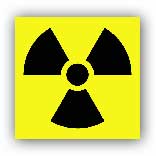|
Two drugs can block the deadly effects of radiation poisoning in mice when given up to 24 hours after exposure. The finding points to a possible new way to protect against radiation injury from environmental exposures or cancer therapy.

High doses of radiation—whether from medical therapy or a large-scale nuclear emergency—can harm the body in many ways. Some of the most lethal effects destroy blood-forming stem cells in bone marrow tissues. These stem cells give rise to red blood cells and a wide variety of immune system cells.
Available treatments can counteract some aspects of radiation damage. These therapies, though, have side effects or other limitations.
In the new study, a multi-center team of scientists searched for a more targeted approach to protect blood-forming cells from radiation injury.
The scientists used a genetic engineering technique to identify genes in bone marrow cells that help the cells survive after mice are exposed to radiation. Several of the genes the researchers found were already known to play some protective role against radiation damage. In one mouse, though, the marrow cells had an alteration that boosted activity of the thrombomodulin gene (Thbd).
This gene encodes a cell-surface receptor that helps to regulate blood production and other processes. Further experiments confirmed that high levels of Thbd could help blood-forming cells recover from radiation injury within living mice.
Thbd is known to help activate another protein, called protein C, that also contributes to the functioning of blood-forming cells. The scientists tested infusions of either Thbd or activated protein C (aPC) in mice that were exposed to potentially lethal doses of radiation. They found that mice treated with either drug were less likely to die than untreated mice. Treatment 30 minutes after radiation exposure allowed high numbers of blood-forming cells to survive and expand. With aPC, doses given 24 hours after radiation more than doubled mouse survival rates compared to untreated mice.
“Current treatments for radiation exposure consist mainly of blood transfusions and growth factors,” says Hauer-Jensen. “We have discovered a new way to protect blood-making cells after they have been irradiated.”
Although it's unclear exactly how the mouse findings might translate to humans, the results do suggest a promising new strategy. The researchers note that both aPC and Thbd have undergone clinical testing for treating other conditions.
The team was led by Dr. Martin Hauer-Jensen at the University of Arkansas for Medical Sciences, Dr. Hartmut Geiger at Cincinnati Children's Hospital Medical Center and Dr. Hartmut Weiler at the Blood Research Institute of Wisconsin. Their research was supported in part by NIH's National Institute of Allergy and Infectious Diseases (NIAID), National Cancer Institute (NCI) and National Heart, Lung and Blood Institute (NHLBI). The study appeared in the July 2012 online edition of Nature Medicine.
For more information
Pharmacological targeting of the thrombomodulin-activated protein C pathway mitigates radiation
toxicity.
(MDN)
|
![]()